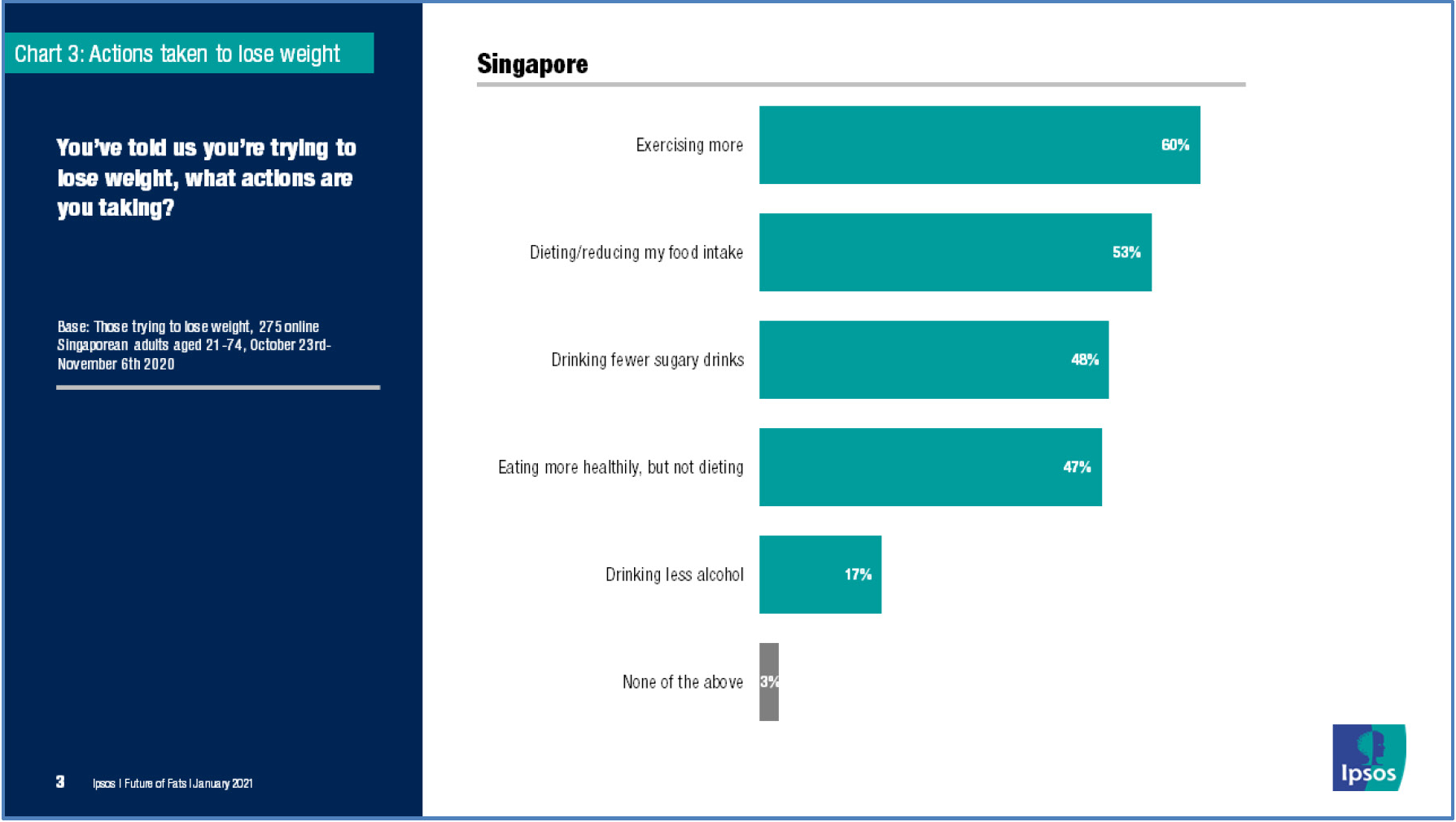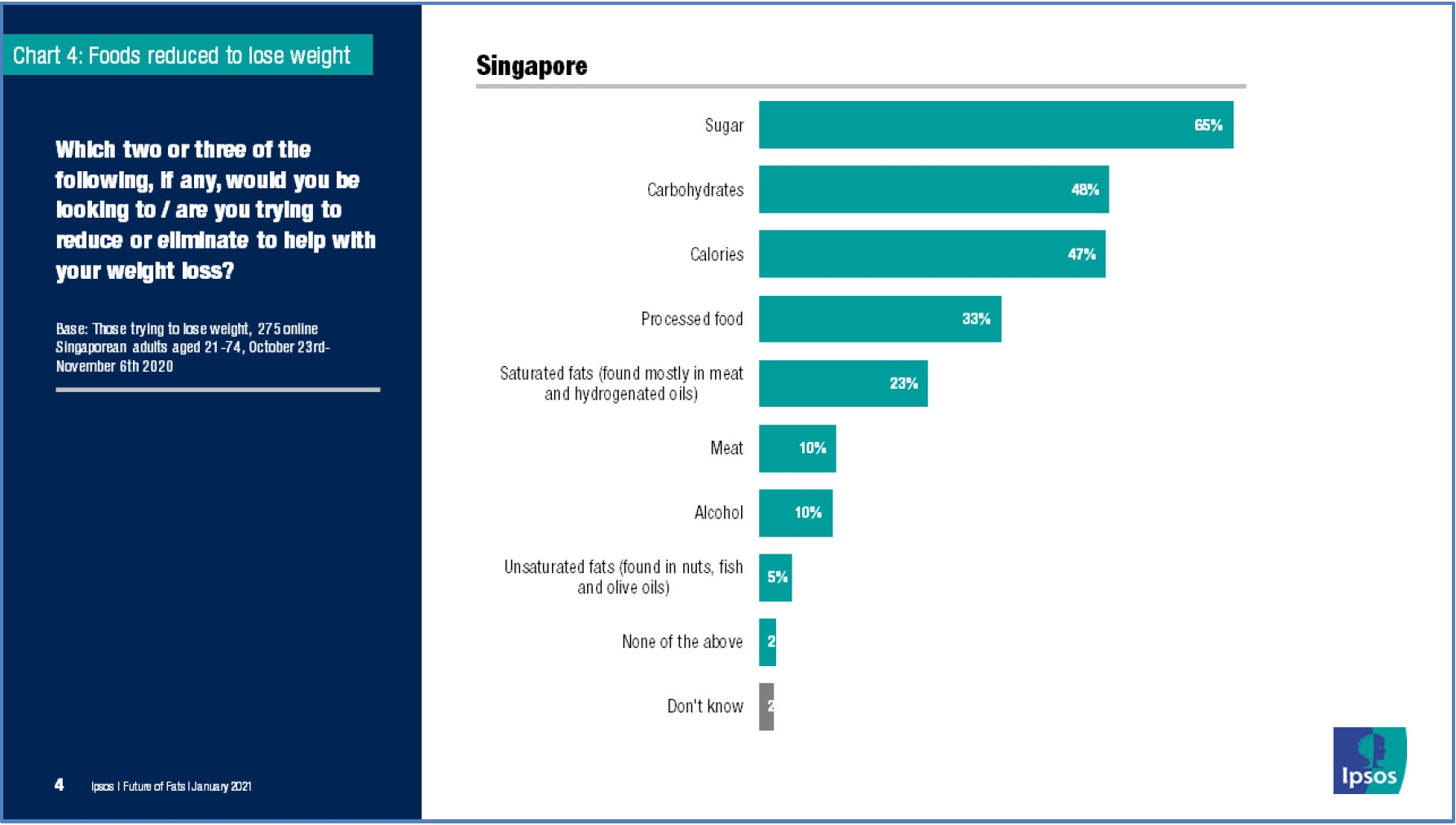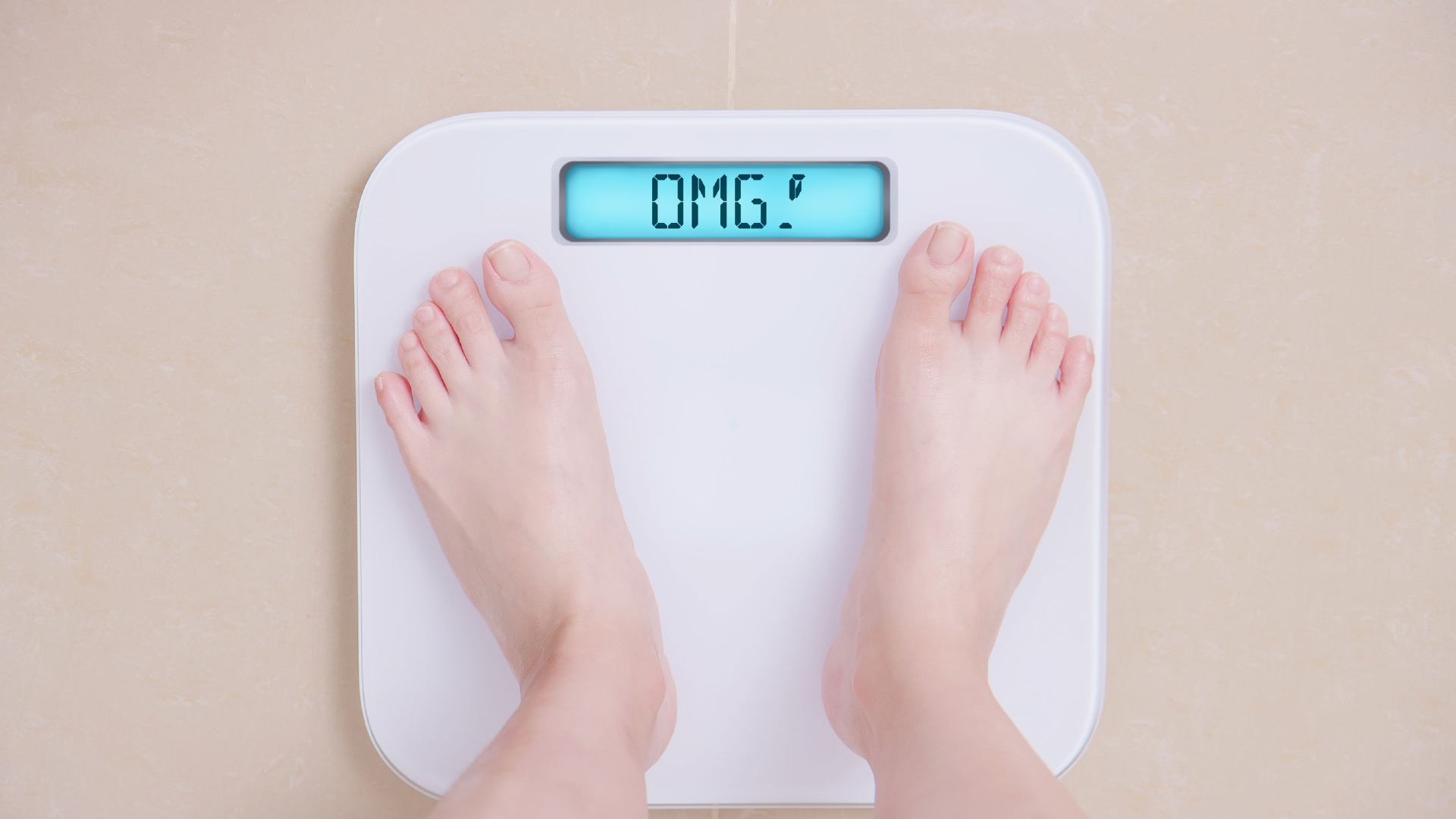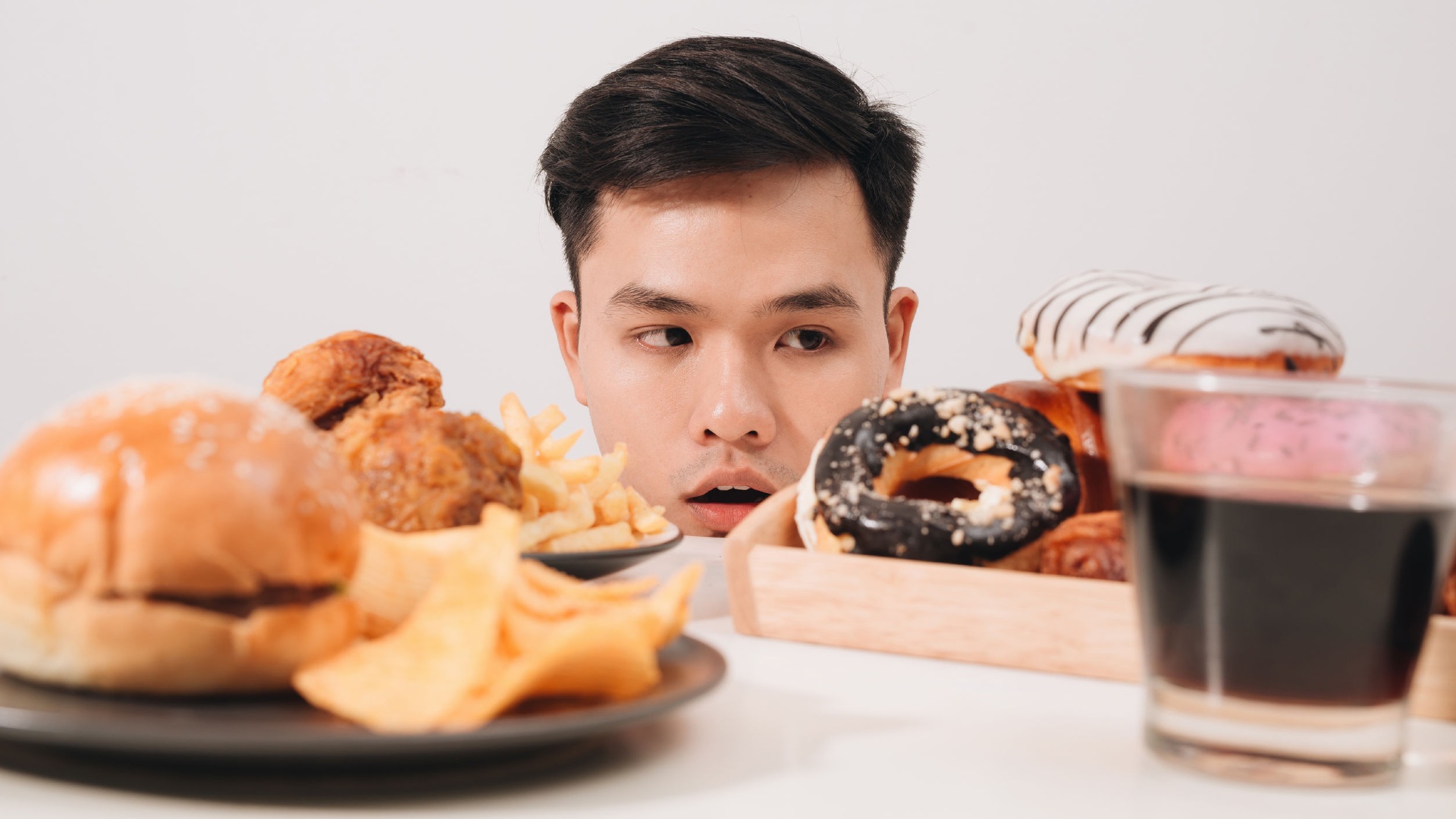Reasons You've Been Eating More And Gaining Weight During The Pandemic
Kee chiu if you, like me, have been piling on the pandemic pounds. I mean, how not to with all the attractive food - and food delivery - discounts plus the constant dinging of the SG Food Deals Telegram notifications, right?
Weight gain during this pandemic is a common grouse these days. Even as we (resist the urge to) reach for comfort food, we can seek comfort in the fact that we're not alone, and that there are ways to curb our unhealthy habits.
But first, some survey results...
According to a study conducted by market research company Ipsos, 30% of the 500 Singaporeans (aged between 21 and 74) surveyed from 23 Oct to 6 Nov 2020 say they have gained weight during the COVID-19 pandemic with an average weight gain of 4.8kg.

Encouragingly, the study also showed that since the COVID-19 pandemic began, 40% have done more exercise and 24% have lost weight, while 2% have given up smoking.

Among those who are trying to lose weight, almost two-thirds (60%) have begun exercising more, over half (53%) have begun dieting or reduced their food intake, and close to half (48%) are drinking fewer sugary drinks.

When asked what foods they would or were trying to eliminate to help with weight loss, a whopping two thirds of those surveyed (65%) said sugar (goodbye kopi, hello kopi o kosong), 48% said carbohydrates, and 47% said calories.
Where does all this extra weight come from?
The COVID-19 pandemic has thrown our lifestyles into disarray, not least our dietary habits. Here are some reasons why you and I have been eating more during this pandemic and, hence, gaining weight.
1. Stress eating
Not all of us are adaptable. And like this pandemic, the aftermath has affected our personal and professional lives in an unprecedented way.
"Most of us are feeling increasingly stressed since the Covid-19 pandemic. Some of us may be experiencing unpleasant and difficult emotions such as fear, anxiety, and even boredom," says Toh Hui Moon, Senior Psychologist (Clinical), National University Polyclinics. "Eating can be a self-soothing coping mechanism during these turbulent times."
"Unique to the Covid-19 pandemic, we are also experiencing physical restrictions from food sources, which may cause repercussion to eating behaviours in some individuals," she adds. "Limited access to certain food may increase our cravings for the food and increase likelihood of overeating whenever the food source becomes available."
2. Types of food consumed
We can’t deny the convenience and affordability of fast food which may have a higher fat content. Combine this with our underestimation of calorie intake, and you have a, ahem, recipe for disaster.
"A proportion of my patients whom I’m seeing for fatty liver and overweight issues gained weight (an average of 3-4kg) over the circuit breaker period," says Dr Loo Wai Mun, Consultant Gastroenterologist, National University Hospital and Alexandra Hospital.
"This is due to obvious reasons like overeating, what with the surge in food delivery and home bakes, and snacking more than usual. This is coupled with increasing sedentary behavior due to immobility, the lack of exercise, and the inability to go out during that period."
3. Decrease in movement, increase in sedentary activities
Three words: Work From Home. Measures responding to safe distancing requirements (such as delivery services) turned out to be a double-edged sword. We are safe (yay!) but we commute less (oh no!). By the way, Sit Too Long And This Is What Happens.
4. Exercise areas, venues, lessons not available
For a period of time, because of the Circuit Breaker and Safe Distancing measures, many of us lost the ability to carry out our usual physical activities and exercise routines. Gyms were closed and there was a lack of facilities for certain exercises and sports. Limited area within our home environments also limited the variety of exercises possible. But hey, with these Mobile And Video Games To Level Up Your Fitness In 2021, there’s no excuse!
5. Availability and accessibility of food
Picture this: 1) Head to the supermarket. 2) Stock up on snacks. 3) Stuff face while working from home and watching movies online. 4) Repeat. Sound familiar?
Being in close proximity to the kitchen and having all those yummy snacks in your field of vision doesn’t help. And remember that boom in home baking? So where did all those muffins and cakes go, hmmm?
6. Cabin fever and boredom
Safe distancing measures and constant reminders to stay home have been two of the key public-health strategies to reduce the spread of COVID-19. But this is a double-edged sword as it has been disruptive.
"These have led to some degree of disruption in social connection and sometimes people experience a 'cabin fever'-like syndrome comprising of symptoms such as mood changes, boredom, low motivation, restlessness, loneliness," says Daniel Kwek, Senior Consultant, Department of Psychiatry, Ng Teng Fong General Hospital.
"These in turn lead to some behavioural changes like sleeping too much or having difficulty sleeping, eating too much, drinking too much alcohol, or problems with concentration."
He adds: "The fear of contagion may also keeps some at home and hence reduce activities. All these factors plus emotional eating or binging can contribute to weight gain."
A vicious cycle
According to Toh Hui Moon, Senior Psychologist (Clinical), National University Polyclinics, any habit formed involves a three-part process:
1) The cue: This is a trigger that initiates the behaviour.
2) The routine: This is the behaviour itself.
3) The reward: This is the benefit from adopting the behaviour.
Once you've received the reward, you will have the desire to repeat the behaviour with the next cue, which begins another cycle.
Typically, pleasure-based habits - like (over)eating - are much harder to break. "Pleasure-based habits can trigger the brain’s reward centre and stimulate the release of dopamine, which makes us feel satisfied and happy, and therefore strengthens the habits," says Hui Moon.
"These habits then become hardwired to our brain and create a craving to do it again. This can set up potentially harmful but oftentimes pleasurable habits such as overeating, smoking, drug or alcohol use."
Read our piece "Jialat I'm Overeating - How Ah?" for some tips on how to address overeating.
World Obesity Day
Today (4 March) is World Obesity Day, a day that throws the spotlight on efforts to build happier, healthier and longer lives for everybody.
According to the World Health Organisation, obesity rates have nearly tripled since 1975 and increased dramatically - almost five times! - in children and adolescents. A great equaliser, obesity has affected people of all ages from all social groups whether in developed or developing countries.
Need help with weight management? Read all our related articles here.
For the latest updates on Wonderwall.sg, be sure to follow us on Facebook and Instagram. If you have a story idea for us, email us at [email protected].











